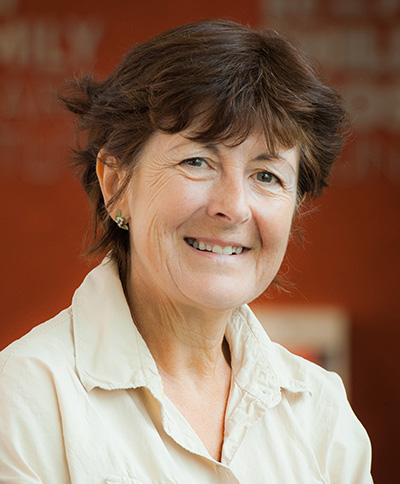 Ten per cent of pregnant Canadian women have a type of omega-3 fatty acid deficiency, which increases the chances that babies will be behind in language development at 18 months of age, according to researchers at UBC and the Child & Family Research Institute.
Ten per cent of pregnant Canadian women have a type of omega-3 fatty acid deficiency, which increases the chances that babies will be behind in language development at 18 months of age, according to researchers at UBC and the Child & Family Research Institute.
The study is the first to show a deficiency of docosahexaenoic acid (DHA) among Canadian women and that increasing DHA intake reduces risks to their child’s development. DHA, which tends to be underrepresented in the Canadian diet, is found in seafood such as salmon and some types of free-range chickens and eggs.
“Ten per cent of the population is a lot of children who are not reaching their potential,” says principal investigator Sheila Innis, a Professor in the Department of Pediatrics, and a Scientist and Director of the Nutrition & Metabolism Research Program at CFRI at BC Children’s Hospital.
The study, involving 270 women from the Vancouver area over four years, was published Jan. 10 in PLOS ONE. All of the women ate their regular, normal diets throughout their pregnancy and kept a food log for the study. The researchers took blood samples from the mothers at 16 weeks and 36 weeks of pregnancy. Approximately half the women received a placebo while half took a daily DHA supplement of 400 mg from 16 weeks of pregnancy until the baby was born. Both groups of women had high rates of breastfeeding.
The researchers, including UBC graduate student Kelly Mulder, tested the children’s vision at two months of age and their language development at 14 and 18 months. Children of DHA-deficient mothers were more likely to have slower vision and slower language development. However, the children’s visual development normalized by 12 months of age, and the DHA deficiency did not affect their gross or fine motor development.
Women who were nutritionally deficient in DHA and took a DHA supplement reduced the risk to their baby’s language development. The DHA supplements only provided benefit to those women on the study who were DHA-deficient, and did not help women who had a healthy, adequate diet.
“Supplements are not a replacement for a healthy, well-balanced diet,” Dr. Innis says. “We used them in our study as a tool to show that the current food supply is inadequate. People who benefitted from the supplements had an inadequate diet. The food supply, diets, and the way people eat puts them at risk of deficiency. Our preference is for people to improve their diets.”
Dr. Innis recommends that pregnant women obtain DHA from a well-balanced diet that includes natural sources of DHA such as salmon and other non-contaminated fish. She emphasizes the importance of eating a variety and diversity of foods with high nutrient density that are low in processed and refined ingredients. To be safe, she recommends that pregnant women eat fish such as salmon that don’t contain environmental contaminants such as metal mercury, PCPs, and dioxins.
